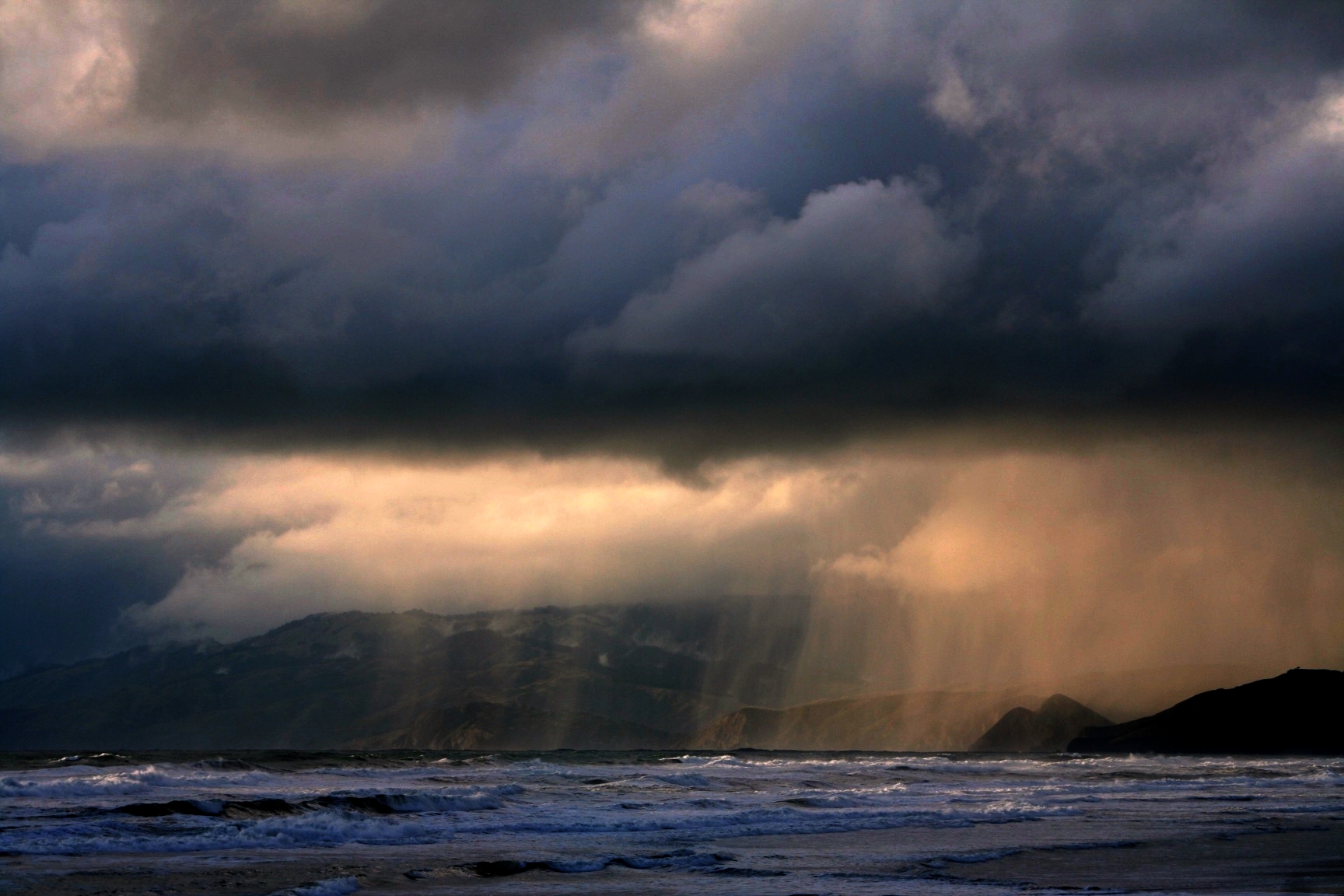Rain is only marginally salty above oceans. It mainly consists of small amounts of salt which evaporate together with the water of the oceans. But most salt in the ocean is the result of rainwater washing down minerals from the shores of the ocean and taking them inside the water.
Rain is partially salty but oceans are the saltiest form of water
Have you ever wondered why the water in the oceans is salty and why the water in rivers is not? Rain washes all salts and minerals that rivers collect and it eventually dumps them into the ocean. The water in the rivers is always fresh as it travels towards oceans. The water in the oceans doesn’t flow anywhere else and this is where the salts end up together.
At the same time, the rain that is formed above oceans is salty, here’s why. Many particles in the air can’t mix with water. We know oils don’t mix with water. This is why airborne waxes don’t mix with rainwater. But salt particles above the ocean are considered hygroscopic. This means water attracts these particles. Rain collects these airborne particles as it falls down into the ocean.
In conclusion, rainwater can be salty as it picks up ions from the atmosphere. But ocean water is already salty as it collects minerals from the rivers and from the rain washing them from the land. Since there’s no way for the ocean’s water to flow, it remains inside of its waters generating a cycle where salty water creates salty rain through the process of evaporation.
Not all oceans have the same salinity level
But not all oceans have the same salinity level. This evaporation process mostly takes place in warm areas around the equator where the temperature is higher compared to the water of the oceans behind the Arctic Circle.

















